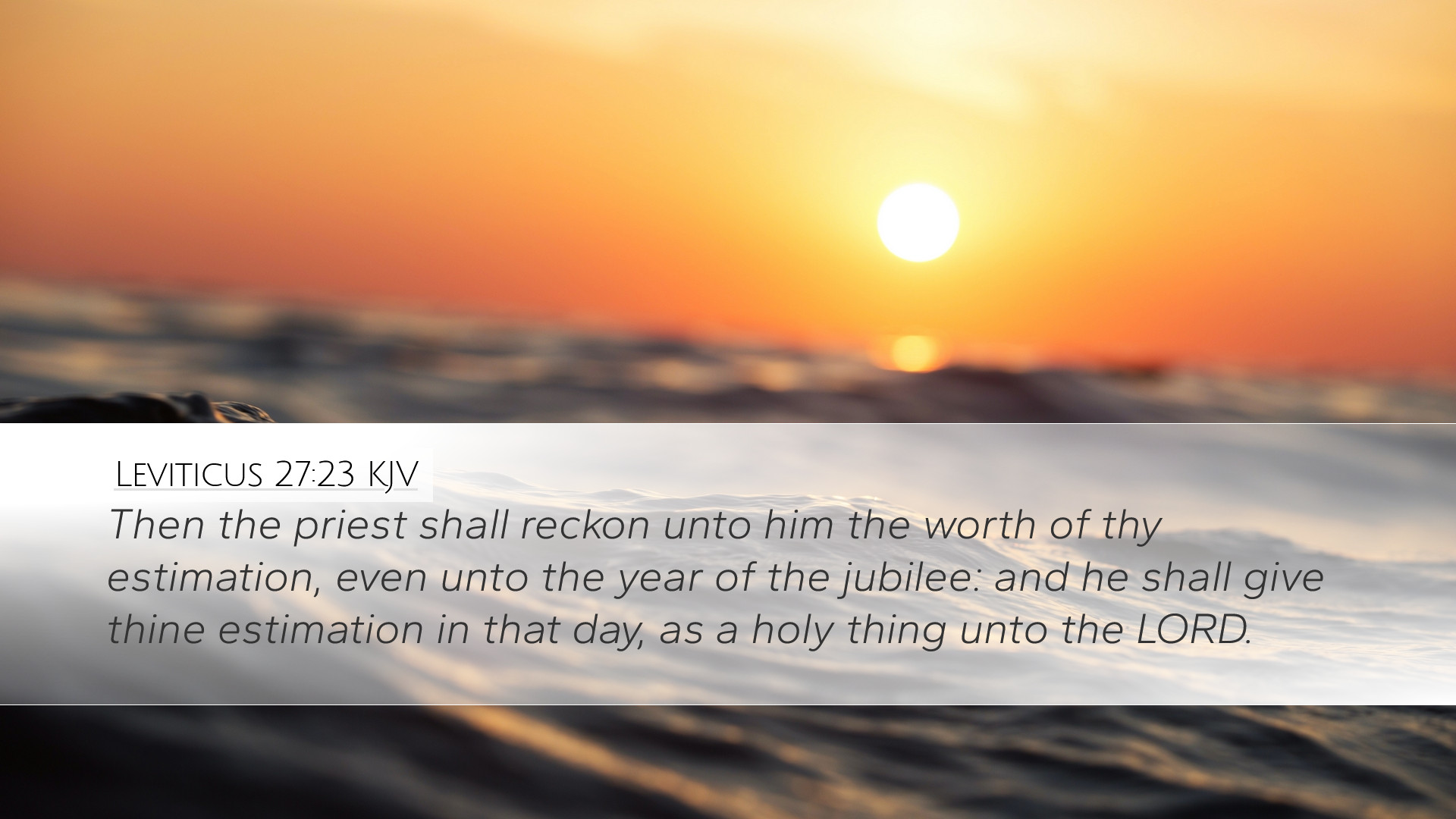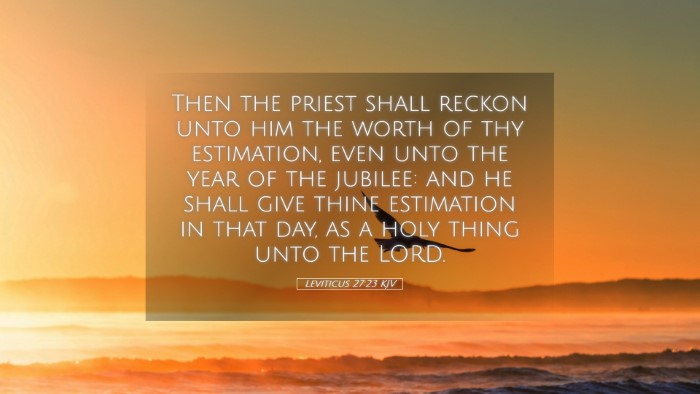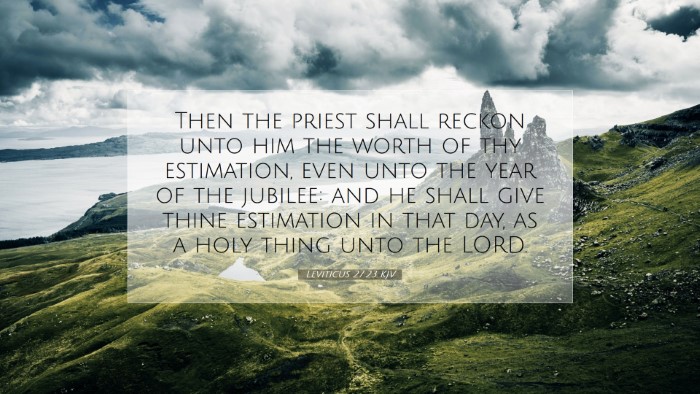Commentary on Leviticus 27:23
Verse: "But if it be a beast, whereof men bring an offering unto the Lord, all that any man giveth of such unto the Lord shall be holy."
Contextual Understanding
The book of Leviticus serves as a guide for the Israelites in their worship and community living. It outlines laws for holiness and proper conduct in their relationship with God. Leviticus 27 deals specifically with the laws concerning vows, dedications, and offerings to God, highlighting the importance of holiness and commitment.
The Nature of Dedication
When scripture refers to beasts, it signifies the ceremonially clean animals that could be offered to God as sacrifices. Matthew Henry notes that the phrase "whereof men bring an offering unto the Lord" demonstrates that certain animals held a status that set them apart for sacred purposes. This verse emphasizes the holiness associated with dedicating these animals, showing that any offering made must reflect the sanctity required in the service of God.
Interpretations of "Holy"
Albert Barnes elucidates that the term "holy" signifies being set apart for God's service. When one dedicates a beast as an offering, it becomes consecrated, implying its complete devotion to the divine purpose. Such offerings are not to be treated casually, but recognized for their special status as a part of the covenantal relationship between God and His people.
- Consecration: The act of dedicating a beast involves acknowledging that it is no longer a common animal but one that is specifically destined for the Lord's use.
- Separation: By offering an animal, followers of God demonstrate their willingness to separate themselves from everyday concerns and elevate their devotion to sacred matters.
- Ritual Practices: This follows the ancient ritual of sacrifice, where animals were offered as a means of atonement or thanksgiving.
Theological Implications
The requirement of offering a holy beast unveils profound theological principles. Adam Clarke points out that these practices display the seriousness with which God regards offerings made to Him. A failure to uphold the sanctity of an offering correlates with a lack of reverence for God, resulting in the needed faithfulness in following this command.
- The Necessity of Sacrifice: Sacrifice is central to biblical worship. Just as offerings involved tangible items, so too do offerings of our lives and our resources require a sacrificial component.
- God's Ownership: Recognizing that all things ultimately belong to God prompts a generous spirit among believers, encouraging them to reflect on their offerings as service to God rather than mere acts of obligation.
Applications for Modern Believers
For contemporary Christians, Leviticus 27:23 reinforces the importance of commitment when dedicating time, resources, and service to God. Pastors and theologians can draw parallels on how these ancient practices still resonate with the ethos of Christian devotion today.
- Personal Dedication: Believers are encouraged to consider the sacrifices they create in their spiritual lives, thereby honoring God with their decisions, actions, and material offerings.
- Community Responsibility: As members of a church, congregants share the responsibility to honor the collective offerings brought before God, understanding their community's role in presenting holy sacrifices.
Conclusion
In conclusion, Leviticus 27:23 offers a profound insight into the significance and requirements for offerings. This verse emphasizes that offerings to God require a recognition of His holiness and our role as stewards of what He has entrusted to us. As such, believers today are invited to reflect upon their own offerings to God, ensuring they echo the reverence due to Him, helping to cultivate a deeper relationship rooted in faith and commitment.


